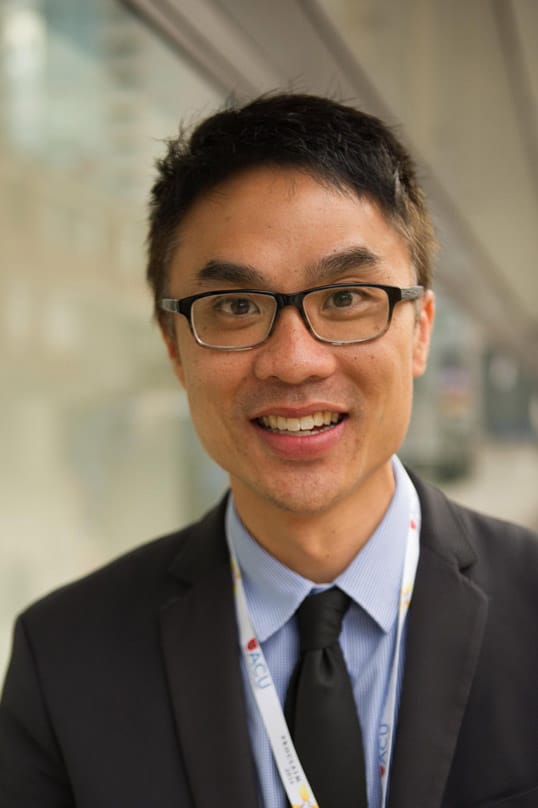
The Church will be in danger of becoming little more than an areligious non-government organisation if Catholics don’t urgently rediscover a call to mission, the priests of the Archdiocese of Sydney heard last week at their annual clergy conference.
Daniel Ang, the Director of the Office for Evangelisation in the Diocese of Broken Bay, delivered a sobering assessment of the state of Australian parishes in front of around 180 priests before providing a roadmap out of the malaise.
A former pastoral planner in the Diocese of Parramatta, Mr Ang affirmed, along with the Pontiff and Archbishop Anthony Fisher OP, that the future of the Church relied on the vitality of parishes.
Parishes in Australia, however, had failed to attend to the changing culture and conditions around them.
Instead they continued to offer programs that sacramentalised people without first “discipling” them into a relationship with Jesus and His Church, often simply as a means of providing parents with a pathway into the local Catholic school.
On the outreach side, research among the ‘nones’ – the increasing number of people who identify as having no religion – was revealing the folly of programs that were more often than not targeted at reactivating non-practising Catholics.
“While scandal and poor experiences of Church and parish can be a part of the story, realistically some have shed the Catholic ‘brand’ as they have come to the plain and simple conclusion that their lives simply no longer reflect the religion they inherited …” Mr Ang said.
“(The) ‘nones’ are not saying, ‘If only you had a better version of Church I would go to it’. They are not interested in ‘Church’ at all, so our new coffee and contemporary Church music is not what they are looking for.”

Evangelisation demanded that we “adjust our eyes and lengthen our arms to reach increasingly secular people where our relationships with them, rather than religious upgrades, will take priority”.
There were three areas in which the Church could begin to turn things around: in taking pre-evangelisation seriously (relationship building, Christian witness and dialogue); in the recovery of discipleship as the fundamental basis of parish life and mission; and in setting a parish vision for motivating growth and change.
Using St Paul as a guide, Mr Ang said that pre-evangelisation preceded catechesis (teaching) and began with first desiring the good of the other. (“Without that desire, not much is possible.”)
It meant responding to questions people were actually asking, rather than providing uninvited answers, and finding common ground in shared convictions.
Returning to discipleship as the Church’s primary reason for being meant resituating the sacraments in their proper context, as indispensible aids in an ongoing relationship with God and His people, the Church.
“A pastoral approach that assumes the sacraments will simply ‘take care of it’ neglects our duty to awaken in each person that active and personal faith, that fertile soil, in which the grace of the sacraments can actually take place …
“Bearing fruit is an essential demand of life in Christ and life in the Church (to quote St John Paul II). The person who does not bear fruit does not remain in communion …”
The process of arriving at and pursuing a parish vision is essential for responding to and communicating God in a specific place and time.
“The alternative to a parish communicating vision is a community standing in the silence of an unquestioned routine,” Mr Ang said.
Vicar-General Fr Gerald Gleeson said he was delighted with the presentation, and that it echoed a key aspiration of Parish 2020 – the need to develop a more missionary mindset as the basis for renewing and revitalising parishes.
“The danger in the Catholic form of life is that we can rely too much on the sacraments just as a formality, rather than being a celebration of discipleship of Christian living,” Fr Gleeson said.
“So there are many people coming to Mass every week, but in a sense they may not think of themselves as disciples, which is a much more active engagement with their faith and with Christ. And that’s what we’re looking for.”
